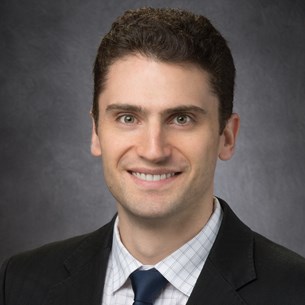Meeting
2022 ASCO Annual Meeting

Department of Thoracic/Head and Neck Medical Oncology, The University of Texas MD Anderson Cancer Center, Houston, TX
Marcelo Vailati Negrao , Maria Pia Morelli , Amir A. Jazaeri , Benny Johnson , Partow Kebriaei , Drew Deninger , Eleanor De Groot , Matthew R. Collinson-Pautz , Nathan A. Demars , Jaymes S. Holland , John Heymach , Raffaele Baffa , Scott Kopetz
Background: In 2022 approximately 1.7 million Americans will die from solid cancers. Recently there have been significant advances in the genetic engineering of T lymphocytes to recognize neoantigens on tumors in vivo, resulting in remarkable cases of tumor regression and remission. Cancer cells frequently harbor KRAS,TP53, and EGFR somatic hotspot mutations that can be processed and presented by tumor HLA as neoantigens to T cells through their T-cell receptor (TCR). These neoantigens are not present in the normal tissues; thus, they are attractive targets for adoptive T cell therapy. Given the number and complexity of different neoantigen/HLA combinations on solid tumors, a TCR library approach is warranted. Therefore, we have developed a library of TCR-T cell therapies including those targeting shared KRAS, TP53 and EGFR mutations. Methods: Patients for whom a TCR matching the subject’s somatic mutation(s) and HLA type is available in our TCR library, and have progressive or recurrent disease following standard therapy are eligible for enrollment on this protocol. Patients with the following tumor types will be enrolled: ovarian, endometrial, colorectal, pancreatic, cholangiocarcinoma, and non-small cell lung cancer. This first-in-human study includes Screening, Pre-Treatment, Treatment and Follow-up Periods. During the Pre-Treatment Period, subjects will undergo apheresis for PBMCs isolation. The PBMCs will be transposed using the Sleeping Beauty system to express the subject’s mutation specific TCR. Bridging therapy after apheresis is allowed once the apheresis product has been accepted. During the Treatment Period, patients will undergo lymphodepletion with cyclophosphamide and fludarabine. After which, the TCR-T cell drug product will be administered to the subject by infusion at the assigned dose level. The starting dose level of Arm A (monotherapy) will be DL1 (5 x10 9 TCR+ Cells) administered on Day 0. Dose escalation will continue utilizing the accelerated BOIN design (planned escalation dose levels: 5 x10 9, 4 x10 10 and 1 x10 11 TCR+ Cells). In Arm B, if initiated by protocol, subjects will also receive aldesleukin (interleukin-2) infusion starting on Day 0 (within 24 hours of TCR-T cell product infusion) at 720K IU/kg, every eight hours for up to 4 days. The Follow-up Period will begin after the subject completes their Day 28 visit. Clinical and radiologic response will be assessed at 6 and 12 weeks after TCR-T cell drug product infusion and every 12 weeks thereafter until up to 2 years or study discontinuation (e.g., disease progression, initiation of new anti-cancer therapy, consent withdrawn), whichever occurs first. All subjects will continue to be followed in the Long-Term Follow-up Protocol for up to 15 years post-TCR-T cell drug product infusion. Clinical trial information: NCT05194735.
Disclaimer
This material on this page is ©2024 American Society of Clinical Oncology, all rights reserved. Licensing available upon request. For more information, please contact licensing@asco.org
2022 ASCO Annual Meeting
Poster Session
Developmental Therapeutics—Immunotherapy
Developmental Therapeutics—Immunotherapy
Cellular Immmunotherapy
NCT05194735
J Clin Oncol 40, 2022 (suppl 16; abstr TPS2679)
10.1200/JCO.2022.40.16_suppl.TPS2679
TPS2679
328b
Abstract Disclosures
2022 ASCO Genitourinary Cancers Symposium
First Author: Michael Thomas Schweizer
2023 ASCO Annual Meeting
First Author: Sophia Frentzas
2024 ASCO Annual Meeting
First Author: Heejung Chae
2023 ASCO Annual Meeting
First Author: Rosa Nadal